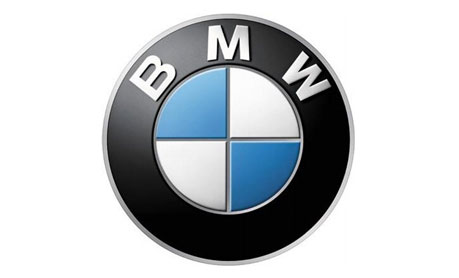Attached please find the Annual Report 2018 for download.
Dear Shareholders,
In the course of 2018, our company had to tackle a variety of challenges within its business environment.
However, we were able to master them and achieve a good result, despite the adversities.
At the same time, the Group is systematically laying the foundations for long-term success going forward. The continuous expansion of our range of electrified vehicles is one good example of this strategy. Particularly in these times of fundamental change, the BMW Group maintains a leading
position in the automotive industry, shaping technological transformation with determination, passion and professional excellence.
Numerous political uncertainties unsettled capital markets over the course of 2018 and dampened the mood on stock markets. In particular, global trade disputes and political uncertainties in Europe dominated stock market developments and negatively impacted investor sentiment. Since the introduction of higher customs tariffs on goods traded between China and the USA on 6 July 2018, the American-Chinese trade dispute had a
particularly negative effect on global stock exchanges and therefore also on auto stocks worldwide.
Negative impact on capital markets in 2018 At the beginning of the 2018 stock exchange year, markets benefited initially from the prospect of robust
global growth and an easing of political tensions on the Korean peninsula. Accordingly, the German stock index (DAX) recorded an all-time high of 13,560 points in January 2018. Subsequently, however, stock market developments were negatively affected by the results of parliamentary elections in Italy and the intensification of the trade dispute between China and the USA. Initial fears were confirmed at the beginning of the third quarter when higher tariffs were introduced in July on goods traded between China and the USA.
Uncertain prospects of a rapprochement in the trade dispute caused prices to fluctuate more widely as the year progressed, resulting in a generally volatile market environment. Alongside the US-China trade conflict, American import duties on steel and aluminium coming from the European Union (EU) also caused uncertainty as from the end of the second quarter.
Moreover, there were discussions regarding a potential increase in US import duties on European automobile imports which had a dampening effect on stock markets.
A meeting between US President Trump and European Commission President Juncker at the end of July, which raised hopes of a possible rapprochement in the trade dispute, seemed to ease the situation and helped drive up share prices temporarily.
However, renewed rumours of tariff hikes between the EU and the US in November again caused market unease. In addition to trade policy issues, the budget debate in Italy as well as discussions regarding the potential repercussions of Brexit darkened the mood on capital markets during the fourth quarter. Towards the end of the year, market sentiment was influenced by the US Federal Reserve’s (Fed) monetary policies. A further rise in the key interest rate prior to the year-end caused share prices to fall once again.
The DAX closed the stock exchange year at 10,559 points, down 18.3 % compared to the end of 2017 (12,918 points). Compared to its high for the
year (13,560 points), the DAX lost 22.1 % in value by the end of the year.
The EURO STOXX 50 fared slightly better than the DAX, finishing the year 14.3 % lower at 3,001 points.
From May onwards, the Prime Automobile Index was significantly weaker on account of the factors referred to above. Higher upfront expenditure by automotive companies for future technologies and possible trade conflicts between the USA and China on the one hand and the USA and Europe on the other dampened market sentiment. The transition to a new emissions standard (Worldwide Harmonised Light Vehicle Test Procedure, WLTP) led to delivery bottlenecks for some automobile manufacturers. These developments were also reflected in the prices of auto stocks. As a result, the sector index fell by 27.2 % over the course of the year, closing at 1,228 points.
BMW stock initially bucked the downward trend in the first quarter of 2018. Since the second quarter, however, BMW stock partially succumbed to the general sector trend and also registered price losses.
Despite the challenging conditions currently facing the automobile industry, which also resulted in the BMW Group adjusting its outlook for the year in September, BMW stock nevertheless outperformed the market as a whole in the third quarter. Uncertainties in the fourth quarter, exacerbated by fears of a disorderly Brexit and an escalation in the trade disputes between the USA and China and the USA and Europe, exerted downward pressure on share prices. Accordingly, BMW stock closed the year with a performance similar to that of the DAX. BMW common stock finished the year at € 70.70, down by 18.6 % since the beginning of the year. BMW preferred stock performed similarly to BMW common stock, finishing the year at € 62.10, 16.8 % lower than the closing price recorded one year earlier.
Although affected by the generally unfavourable market environment, BMW stock held its value relatively well, particularly in comparison with the sector index.
At the end of 2018, with a market capitalisation of some € 46 billion, the BMW Group remained among the ten most valuable German enterprises listed on the stock market.
Motorcycles Segment
Motorcycle deliveries increase Deliveries of motorcycles reached a new record level of 165,566 units in 2018 (2017: 164,153 units; + 0.9 %), marking the eighth successive year of growth.
Effect of model change felt particularly in Europe The model change in the mid-class segment had a particularly significant impact on the European market, causing motorcycle deliveries to fall slightly by 3.3 % to 98,144 units in 2018 (2017: 101,524 units). At 23,824 units, deliveries to customers in Germany were down year-on-year (2017: 26,664 units; – 10.7 %).
Italy saw a slight decrease, with deliveries falling to 14,110 units (2017: 14,430 units; – 2.2 %). By contrast, volumes remained similar to the previous year’s level in Spain (11,124 units; 2017: 11,193 units; – 0.6 %) and France (16,615 units; 2017: 16,607 units; 0.0 %). In the USA, BMW Motorrad reported a slight increase of 2.2 % to 13,842 units despite difficult market conditions (2017: 13,546 units).
Motorcycle production down year-on-year due to model changes A total of 162,687 motorcycles rolled off BMW Motorrad’s production lines at five locations during the year under report (2017: 185,682 units; – 12.4 %). Since July 2018, BMW Motorrad scooters have also been manufactured by BMW Motorrad’s partner Loncin Motor Co., Ltd in Chongqing, China.
Eight new models introduced
BMW Motorrad presented a total of eight new models at the international motorcycle trade shows in Cologne (INTERMOT) and Milan (EICMA), comprising the R 1250 GS, R 1250 GS Adventure, R 1250 RT, R 1250 R, R 1250 RS, C 400 GT, F 850 GS Adv. and S 1000 RR. In the case of the third generation of the S 1000 RR, BMW Motorrad’s customers can now select a BMW M package for the first time. The R 1250 models are also equipped
with new engines that generate more power, especially at lower speeds, and help improve energy efficiency.

Michael Le Pard (“Mr. Totalmotorcycle”) is the Founder of Total Motorcycle, the world’s largest motorcycle information site, trusted by over 430 million riders since 1999. With over 34 years of experience in motorcycles, gear and rider culture, he has built a global community dedicated to empowering and inspiring motorcyclists.
Total Motorcycle remains his passion project. Combining expert research, hands‑on knowledge and a commitment to helping riders make informed decisions about bikes, gear and safety worldwide.



